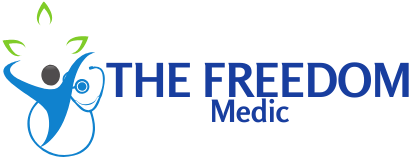Integrity and ethics are integral to living a fulfilling and successful life. Without a strong sense of integrity and ethics, you may find yourself struggling to gain the respect and trust of others, both personally and professionally. Developing a strong sense of integrity and ethics takes time and effort, but it is an essential aspect of personal and professional development. In this blog post, I will discuss the best ways to cultivate a strong sense of integrity and ethics so that you can thrive in all areas of your life. Whether you are looking to enhance your own character or instill these values in others, these strategies will provide you with the tools and knowledge to do so effectively. So, let’s explore the steps you can take to nurture a strong sense of integrity and ethics.
Understanding Integrity and Ethics
To develop a strong sense of integrity and ethics, it is crucial to first understand what these terms mean and how they influence your personal and professional life. Integrity refers to the quality of being honest and having strong moral principles, while ethics involves the set of moral principles that govern a person’s behavior or the conducting of an activity. When you have integrity, you are true to yourself and others, and your actions align with your beliefs and values. Ethics, on the other hand, guide your decision-making process and determine what is right or wrong in a given situation.
Definition and Difference between Integrity and Ethics
Integrity and ethics are often used interchangeably, but they have distinct meanings. Integrity is about staying true to your principles, being honest, and doing the right thing even when no one is watching. On the other hand, ethics are the principles that guide your behavior and choices, considering the impact they have on others. While integrity focuses on the individual, ethics take into account the broader implications of your actions on the well-being of others and society as a whole.
The Role of Integrity and Ethics in Personal and Professional Life
Integrity and ethics play a crucial role in shaping your personal and professional life. In your personal life, having strong integrity means being honest and trustworthy in your relationships, making decisions based on your values, and taking responsibility for your actions. When it comes to your professional life, integrity and ethics are essential for building trust and reputation. Employers and colleagues value individuals who demonstrate honesty, reliability, and ethical conduct. On the flip side, lacking integrity and ethical behavior can harm your relationships, reputation, and career opportunities. It is important to be mindful of how your actions align with your values and how they affect others in both your personal and professional life.
Strategies for Cultivating Integrity
Some of the best ways to develop a strong sense of integrity and ethics involve implementing specific strategies and practices into your daily life. By consciously working on these strategies, you can strengthen your character and ethical decision-making abilities. For a comprehensive list of strategies to promote integrity in the workplace, check out 10 Strategies to Promote Integrity in the Workplace.
Self-Assessment and Accountability
One way to cultivate integrity is by engaging in regular self-assessment and holding yourself accountable for your actions. Reflect on your values, motivations, and behavior, and consider how they align with your ethical principles. Assessing your actions and acknowledging your own shortcomings can help you identify areas for improvement and encourage a commitment to ethical behavior.
Consistency in Words and Actions
Consistency in the alignment of your words and actions is crucial for building integrity. People are quick to notice inconsistencies and may perceive you as untrustworthy if you fail to follow through on your promises or act in ways that contradict your stated values. Strive to ensure that your words and deeds align with your ethical principles, and demonstrate consistency in your behavior across different situations and relationships.
Dealing with Ethical Dilemmas
When faced with ethical dilemmas, it’s important to respond with integrity. Such situations test your moral compass and decision-making skills, making it essential to approach them thoughtfully and with an unwavering commitment to doing what is right. Taking time to analyze the potential consequences of your actions, seeking advice from trusted individuals, and evaluating the impacts on others can help you navigate these challenges while upholding your ethical standards.
Fostering an Ethical Environment
However, developing a strong sense of integrity and ethics is not just an individual pursuit. It’s important to foster an ethical environment in your workplace or community. This includes creating an atmosphere where honesty, transparency, and moral values are not just encouraged, but expected. By doing so, you can cultivate a culture that promotes ethical behavior and decision-making.
If you are looking for ways to cultivate an ethical environment, you can refer to the article 5 Ways to Help Build Your Integrity for more insights and practical tips on fostering integrity within your organization.
Influence of Surroundings on Ethical Behavior
Your surroundings and the environment you work in play a significant role in shaping your ethical behavior. It’s essential to be mindful of the impact of your workplace culture, peers, and leadership on your ethical conduct. A toxic or unethical work environment can make it challenging to uphold your integrity, while a supportive and ethical culture can reinforce your commitment to ethical behavior. Surround yourself with individuals who share your values and prioritize ethical conduct to strengthen your own moral compass.
Encouraging Ethical Conduct in Others
As you develop your sense of integrity and ethics, it’s equally important to encourage ethical conduct in those around you. Lead by example – demonstrate your commitment to ethical behavior through your actions and decisions. By holding yourself and others accountable for their conduct, you can create a culture of accountability and ethical responsibility. Offer support and guidance to those who may be struggling with ethical dilemmas, and emphasize the importance of ethical decision-making in all aspects of your personal and professional life.

Persistence in Ethical Growth
Lastly, developing a strong sense of integrity and ethics requires persistence in your growth. It’s not something that happens overnight, but rather a continuous effort to uphold and improve your ethical standards.
Continuous Learning and Improvement
One of the key ways to persist in your ethical growth is through continuous learning and improvement. By staying informed about ethical issues and seeking out opportunities for personal and professional development, you can continue to strengthen your ethical compass. This could involve attending workshops, reading literature on ethics, or participating in discussions and debates on ethical topics. Embracing a mindset of continuous improvement will help you stay grounded in your ethical values and adapt to new challenges that may arise.
Case Studies and Role Models
Another important aspect of persistence in ethical growth is learning from case studies and role models. By examining real-life examples of ethical dilemmas and the decisions that were made, you can gain valuable insights into how to navigate similar situations. Additionally, identifying and studying the actions of ethical role models can provide you with inspiration and guidance on how to handle ethical challenges in your own life and career.
- Case Study 1: The Enron Scandal – Understand the consequences of unethical behavior in a corporate setting and the impact it has on employees, investors, and the broader community.
- Case Study 2: The Volkswagen Emissions Scandal – Analyze the ethical implications of corporate deceit and the damaging effects on the environment and public health.
- Case Study 3: The Watergate Scandal – Explore the ethical implications of political corruption and the erosion of trust in public institutions.
- Role Model 1: Mahatma Gandhi – Learn about his unwavering commitment to truth and nonviolent resistance, and how his ethical principles influenced social change.
- Role Model 2: Malala Yousafzai – Examine her courage in standing up for girls’ education in the face of adversity and how her ethical stance inspired a global movement.
By studying these case studies and role models, you can gain a deeper understanding of the importance of ethical decision-making and the potential impact of your choices on a larger scale.


